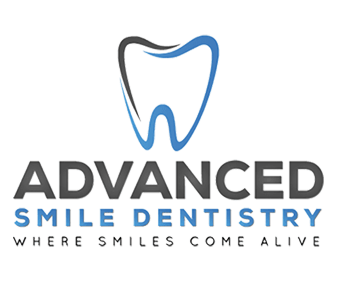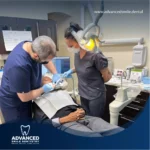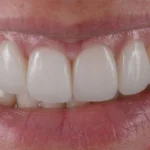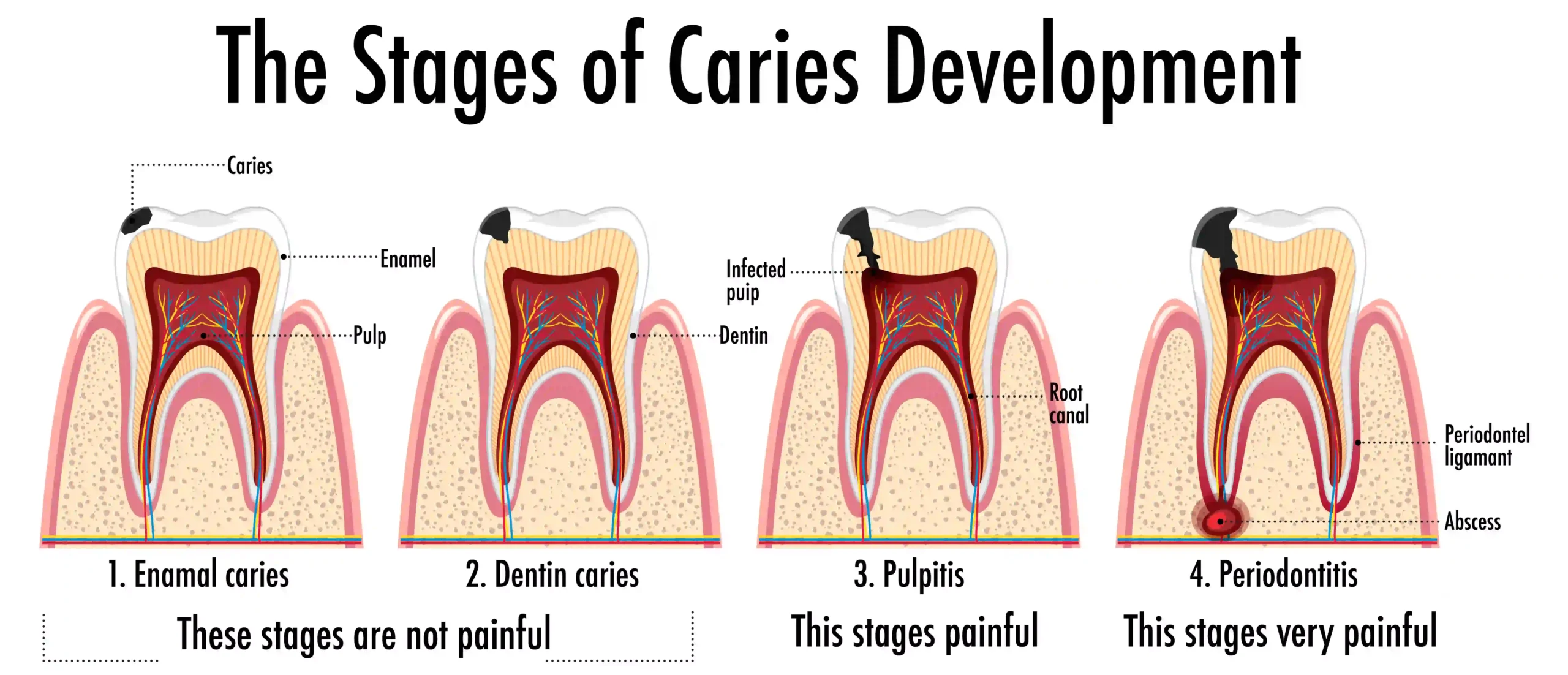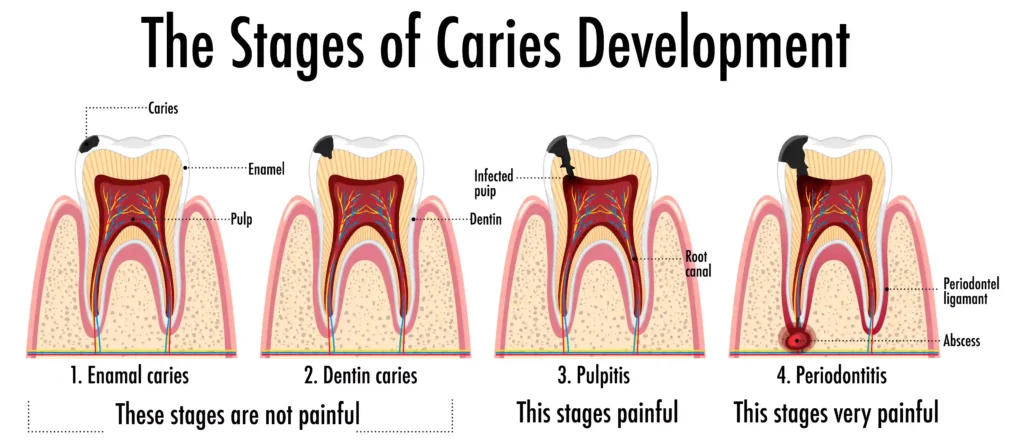How to Get Rid of Gingivitis
How to Get Rid of Gingivitis?
Gingivitis is a mild form of gum disease that can often be managed with proper oral hygiene and gum disease self-cares. Here are some steps you can treat gingivitis at home and gingivitis self-care methods:
-
Maintain Good Oral Hygiene:
- Brush your teeth at least twice a day using a fluoride toothpaste. Make sure to brush along the gumline and gently massage your gums as well.
- Floss daily to remove plaque and food particles from between your teeth and along the gumline.
-
Use an Antiseptic Mouthwash:
- An antimicrobial mouthwash can help reduce plaque and bacteria in your mouth. Look for a product with the American Dental Association (ADA) Seal of Acceptance.
-
Choose the Right Toothbrush:
- Use a soft-bristled toothbrush to prevent irritating your gums and make gingivitis self-care. Replace your toothbrush every 3 to 4 months or sooner if the bristles are frayed.
-
Healthy Diet:
- Limit sugary snacks and beverages, as these can contribute to plaque formation. Opt for a balanced diet rich in fruits, vegetables, whole grains, lean proteins, and low-fat dairy.
-
Quit Smoking:
- Smoking can increase your risk of gum disease. If you smoke, consider quitting to improve your oral health.
-
Regular Dental Checkups:
- Visit your dentist for regular checkups and professional cleanings. A dental professional can remove tartar (hardened plaque) that cannot be removed through regular brushing and flossing.
-
Manage Medical Conditions:
- Conditions like diabetes can increase your risk of gum disease. Properly managing any underlying medical conditions can help prevent gingivitis.
-
Manage Stress:
- High stress levels can affect your immune system and increase your risk of gum disease. Practice stress-reduction techniques such as exercise, meditation, or yoga.
-
Rinse with Warm Salt Water to get rid of gingivitis:
- Rinsing your mouth with a warm saltwater solution may help reduce inflammation and promote healing. Mix half a teaspoon of salt in a glass of warm water and rinse your mouth for about 30 seconds.
-
Avoid Aggressive Brushing:
- Brushing too hard can actually damage your gums and lead to further irritation. Use a gentle, circular motion when brushing.
The question of how to cure gum disease without a dentist is risky. If you have a problem with gum disease and gum disease self-care methods have not cured you, you should definitely seek professional help.
Remember, gingivitis is a mild form of gum disease, and these gingivitis self-care steps can help prevent gum disease progression.
However, if your gingivitis is severe or persists despite following these measures, it’s important to consult a dentist.
How long does it take for gingivitis to go away?
The timeline for gingivitis to go away can vary widely depending on factors such as the severity of the condition, how well you adhere to oral hygiene practices, and your individual response to gum disease self-care.
In general, if you consistently follow proper oral hygiene practices and receive appropriate treat for gum disease, you might start noticing improvements within a few weeks. However, complete resolution of gingivitis can take several weeks to a few months.
Here’s a general outline of how the timeline might look:
-
Initial Improvement (1-2 weeks):
- With consistent brushing, flossing, and the use of antimicrobial mouthwash, you may start to notice a reduction in inflammation and bleeding within the first couple of weeks.
-
Continued Improvement (2-6 weeks):
- As you continue your oral hygiene routine and potentially receive a professional dental cleaning, you should see further improvements in gum health. Swelling, redness, and bleeding should continue to decrease.
-
Healing and Maintenance (2-3 months):
- It may take a couple of months for your gums to fully heal and return to a healthy state. During this time, continue practicing good oral hygiene, maintaining a healthy diet, and attending regular dental checkups.
-
Long-Term Management to Prevent Gingivitis:
- Even after your gums have healed, it’s essential to maintain your oral hygiene routine to prevent gingivitis from returning. Regular brushing, flossing, and professional cleanings are crucial for ongoing gum health.
Keep in mind that individual responses can vary, and it’s possible for gingivitis to take longer to resolve in some cases.
Additionally, if your gingivitis is more severe or if there are underlying factors contributing to the condition, the timeline for improvement may be extended.
What is the Strongest Natural Antibiotic for Tooth Infection?
One natural remedy that is often mentioned for its potential antibacterial properties is raw, organic honey. Honey has been used historically for its potential wound-healing and antibacterial effects.
It contains enzymes that produce hydrogen peroxide, which has antimicrobial properties.
However, the evidence supporting the use of honey as a standalone treatment for tooth infections is limited, and it’s not a substitute for professional medical care.
If you suspect a tooth infection, you should reach out to a dentist or healthcare provider. They can provide a proper diagnosis and recommend appropriate treatments, which might include antibiotics or other medical interventions.
Does dental implant cause gum disease?
Dental implants themselves do not cause gum disease (also known as periodontal disease), but improper care and maintenance of dental implants can potentially lead to a condition called peri-implantitis, which is similar to gum disease and can affect the tissues surrounding the implant.
You can visit our website for more detailed information about our personalized and cost-effective dental implant treatment.

